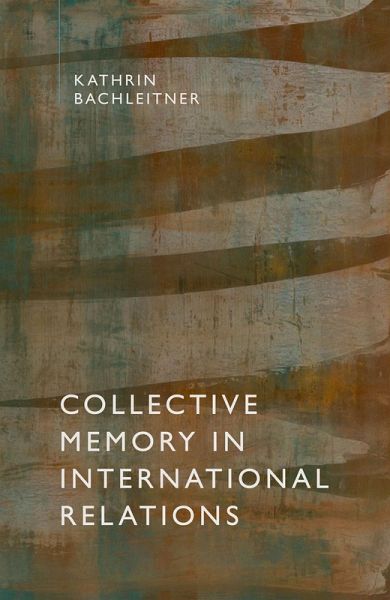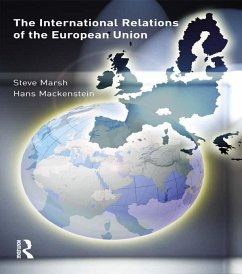
Collective Memory in International Relations (eBook, ePUB)
Versandkostenfrei!
Sofort per Download lieferbar
38,95 €
inkl. MwSt.
Weitere Ausgaben:

PAYBACK Punkte
19 °P sammeln!
Collective memory carries the past into the present. This book traces the influence of collective memory in international relations (IR). It locates the origins of a country's memory within the international environment and inquires how memory guides states through time in world politics. Collective memory, as such, not only shapes countries and their international interactions, but the international sphere also plays an essential role in how countries approach the past. Through in-depth examinations of both domestic and international landscapes in empirical cases, the book explores four ways ...
Collective memory carries the past into the present. This book traces the influence of collective memory in international relations (IR). It locates the origins of a country's memory within the international environment and inquires how memory guides states through time in world politics. Collective memory, as such, not only shapes countries and their international interactions, but the international sphere also plays an essential role in how countries approach the past. Through in-depth examinations of both domestic and international landscapes in empirical cases, the book explores four ways in which collective memory can manifest in IR: as a country's political strategy; as its public identity; as its international state behaviour; and finally, as a source for its national values. A comparative case study of (West) Germany and Austria illustrates how significantly differing interpretations of the Nazi legacy impacted their respective international policies over time. Taken together, this book investigates whether collective memory influences global outcomes and how and why it matters for IR.
Dieser Download kann aus rechtlichen Gründen nur mit Rechnungsadresse in A, B, BG, CY, CZ, D, DK, EW, E, FIN, F, GR, HR, H, IRL, I, LT, L, LR, M, NL, PL, P, R, S, SLO, SK ausgeliefert werden.













